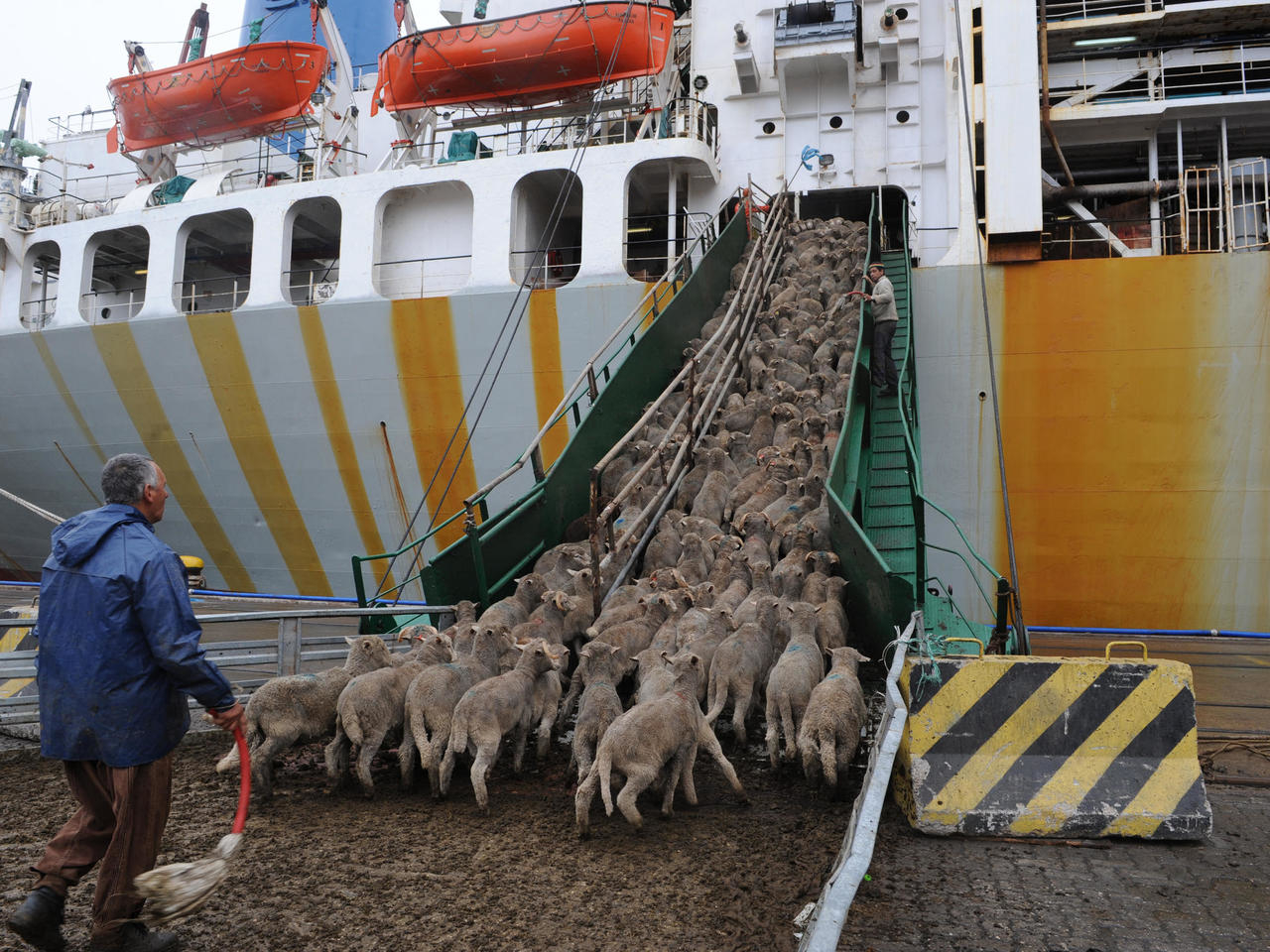12451
0
130,000 sheep are starving to death in front of the clogged Suez
130,000 sheep are starving to death in front of the clogged Suez. Most sheep sailed to Saudi Arabia and Jordan.

Yazar: Tom Roberts
Yayınlanma: 30 Mart 2021 21:55
Güncellenme: 6 Şubat 2026 09:48
130,000 sheep are starving to death in front of the clogged Suez
"Every hour counts and sheep mortality will only rise. Eleven Romanian ships were long overdue and we are sure that animal feeding has already taken place, "said Gabriel Paun, head of the European branch of the NGO Animals International. Detention in the Suez Canal is not the first time that embarked animals are endangered this year. Last week, Spanish authorities ordered the slaughter of 1,600 cows that had sailed from Spain to Turkey for more than three months. Since the beginning of February, Romania has exported 50,000 sheep a week by sea, and interest in them is growing due to the upcoming Muslim holiday of Ramadan. Most sheep sailed to Saudi Arabia and Jordan, according to the Romanian Association of Livestock Breeders and Exporters (Acebop). Turkish authorities feared that the animals became infected with bluetongue. This was the second such case in Spain this month, at the beginning of March they had to spend almost 900 cows, which spent over two months on a boat trip across the Mediterranean Sea and which were also originally destined for Turkey. In 2018, the countries of the European Union exported more than 2.8 million animals, of which 625,000 were cows and 2.2 million were sheep and goats. More than half of the sheep and goats came from Romania. The most frequent destinations were Turkey, Syria, Jordan, Egypt and Libya. The animals most often sailed from ports in Romania, France and Spain, AFP said, citing EU statistics. For several years now, animal rights activists have been drawing attention to the unsatisfactory condition of vessels, which are often old and unsuitable for transporting animals, for example due to low ceilings or steep platforms. In most cases, these are ships that used to carry cars. There is also usually no veterinarian on board to deal with any difficulties during the voyage. On average, these voyages across the Mediterranean take five to eight days, but according to the European Commission, they sometimes take several weeks. The reason for transporting live animals is not the durability of the meat or the need for ritual slaughter, but simply the price of slaughter, which will be significantly more expensive in Europe, is convinced Agathe Gignoux from the CIWF.İLGİLİ HABERLER





European stocks soared and focus shifted to German retail sales after Powell's speech!

Forex Signal For TRY/USD: Inflation Slowdown in November.

Forex Signal For GBP/USD: Bullish Trend Still Not Breaking While Recovery Continues.

Forex Signal For EUR/USD: Starry US Data Points to Higher Fed Increases.

Forex Signal For BTC/USD: Downside Continues as Bitcoin Recovery Moves Less.
En Popüler Haberler
Yorum Yap
Yorumlar
Henüz yorum yapan yok! İlk yorumu siz yapın...